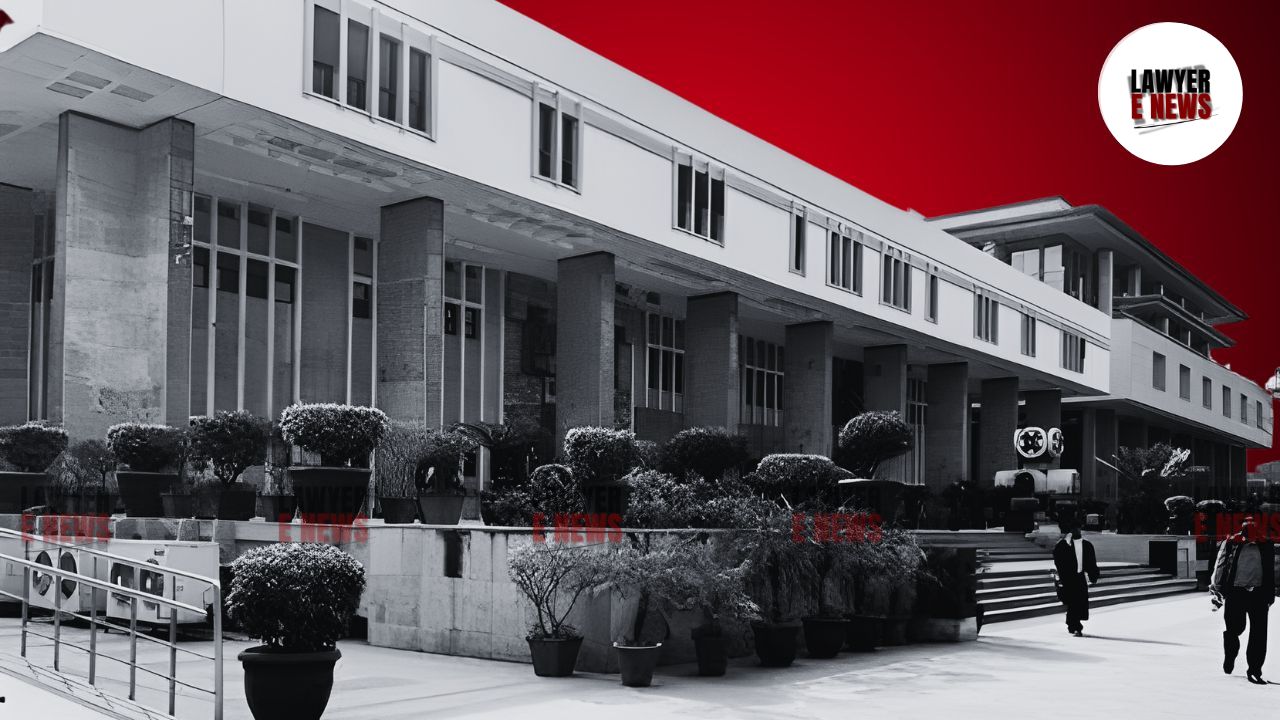-
by Admin
15 February 2026 5:35 AM



Delhi High Court bench of Justice Vibhu Bakhru and Justice Swarana Kanta Sharma delivered a key judgment in Principal Commissioner of Income Tax, Delhi-11 v. Ms. Sangeeta Jain (ITA No. 1092 of 2018). The court upheld the jurisdiction of the Principal Commissioner of Income Tax (PCIT) under Section 263 of the Income Tax Act, 1961, to revise an assessment order on the grounds that it was erroneous and prejudicial to the interests of the Revenue. The court found that the Assessing Officer (AO) had failed to conduct necessary inquiries to verify the exemption claim for capital gains on the sale of land classified as agricultural.
Ms. Sangeeta Jain, the respondent, filed her income tax return for the assessment year 2013-14, declaring a capital gain of ₹10.72 crore from the sale of land, which she claimed was exempt from tax as it was agricultural land located beyond the municipal limits of Sohna District, Haryana. The AO accepted this claim based on a certificate issued by the Tehsildar without independently verifying the land’s actual distance from the nearest municipal limits. Subsequently, the PCIT issued a notice under Section 263, asserting that the AO’s reliance on the Tehsildar’s certificate without further inquiry was erroneous and prejudicial to Revenue interests.
The Income Tax Appellate Tribunal (ITAT) quashed the PCIT’s order, holding that the AO’s decision was not erroneous and that the Tehsildar’s certificate was adequate for establishing the land’s agricultural status. Aggrieved, the Revenue filed an appeal with the Delhi High Court.
Jurisdiction of PCIT under Section 263: Whether the PCIT could invoke Section 263 to revise an assessment order where the AO did not sufficiently verify an exemption claim.
Sufficiency of Inquiry by the AO: Whether reliance solely on the Tehsildar’s certificate without further verification constituted an "absence of inquiry" rather than "inadequate inquiry."
Classification of Land as Agricultural Land: Whether the sale of the land in question qualified for exemption under Section 2(14) of the Income Tax Act, which defines a "capital asset" and excludes agricultural land located beyond a certain distance from municipal limits.
The court noted that an order is considered erroneous under Section 263 if it is passed without adequate inquiry, especially where such inquiry is crucial to determining the tax treatment of a transaction. Citing Gee Vee Enterprises v. Addl. CIT, the court underscored that the AO is both an adjudicator and investigator, responsible for verifying facts that are essential to the tax determination. In this case, the AO failed to verify the distance of the land from municipal limits or corroborate the Tehsildar’s certificate with additional sources such as the District Town Planner (DTP) of Gurugram, who later confirmed the land was within municipal limits.
“The AO cannot remain passive in the face of an exemption claim which requires inquiry. The lack of any verification of the land’s location relative to municipal limits renders the AO’s order erroneous,” the court stated [Para 36].
The court emphasized that the Tehsildar’s certificate was insufficient to establish the agricultural status of the land, as it lacked precise measurements of the land’s distance from municipal boundaries, which is required under Section 2(14)(iii) to determine exemption eligibility. Furthermore, the DTP report contradicted the certificate, confirming that the land was within the expanded municipal limits of Gurugram.
“Relying on a certificate lacking detailed verification falls short of the inquiry standards expected in tax assessments,” observed the court [Para 32].
The High Court clarified that the AO’s actions amounted to a complete "lack of inquiry," not merely "inadequate inquiry." Citing CIT v. Sunbeam Auto Ltd., the court explained that an "inadequate inquiry" may not warrant revision under Section 263. However, when no inquiry is conducted at all on an essential element — in this case, the distance of the land from municipal limits — the order is open to revision under Section 263.
“The AO’s failure to even apply his mind to the distance requirement signifies a lack of inquiry, justifying PCIT’s intervention,” the court ruled [Para 55].
The court observed that the erroneous exemption granted by the AO resulted in a significant loss of tax revenue. Since the PCIT's jurisdiction under Section 263 requires both error and prejudice to Revenue, the court held that the conditions for revision were met in this case.
The Delhi High Court allowed the appeal by the Revenue, setting aside the ITAT’s order and reinstating the PCIT’s revision order under Section 263. The court directed a reassessment of the case to verify the land’s classification and determine whether the capital gains exemption was justified.
“In cases where an AO accepts claims without proper inquiry, the PCIT’s revisional power is essential to protect Revenue interests and ensure compliance with tax laws,” the court concluded.
Key Takeaways from the Judgment
Inquiry Requirements in Tax Exemptions: The judgment underscores that tax officers must thoroughly investigate claims for exemptions, particularly when such claims hinge on factual criteria like distance from municipal limits.
Distinguishing "Lack of Inquiry" from "Inadequate Inquiry": The ruling clarifies that while inadequate inquiry may not invoke Section 263, a complete lack of inquiry on a critical issue justifies revision to prevent Revenue loss.
Limitations of Public Certificates in Tax Proceedings: The court highlighted that certificates from local authorities, such as Tehsildar’s certificates, should not be accepted at face value for tax exemptions without corroborative evidence.
This ruling reinforces the duty of tax authorities to conduct rigorous inquiries into exemption claims and supports the use of Section 263 to address orders passed without adequate verification. By upholding the PCIT's intervention, the Delhi High Court has clarified that tax assessments should be based on robust inquiries and that oversight mechanisms, like Section 263, are essential for maintaining the integrity of the tax administration process.
Date of Decision: November 8, 2024
